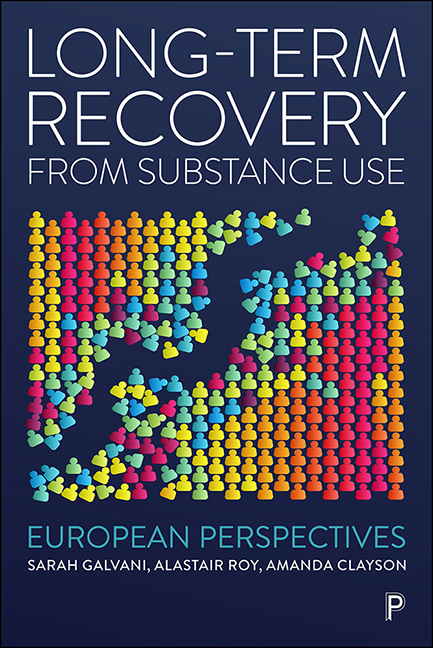1 - Recovery as long term: an introduction
Published online by Cambridge University Press: 15 September 2022
Summary
A great deal has been written in academic and popular forms about recovery from substance use. Far less has been written about long-term recovery. This long-term perspective is important in that it explicitly recognises and respects the long-term nature of the struggles many people with substance-use issues take on in pursuing, defining and realising their own recovery. This is a theme that runs throughout this edited collection, and we will hear powerful testimonies that illustrate those struggles. In this opening chapter we begin by introducing the concept of recovery, briefly addressing the history of the use of the term in the sector as well as some of the key definitional issues and debates. We move on to discussing the idea of long-term recovery, introducing our ideas about why a durational or time-based view of recovery might be both limiting for our understanding of recovery but also important for defending an ethic of care and valuing person-centred change. We explore the importance of the voices of those with lived experience, arguing that the value of many of the stories in this book is in how they link the particularities of people's lived experience of recovery with the systems and structures in which people live. In this respect, the breadth of the people and places covered in the collection is a key strength.
Introducing the concept of recovery
The use of alcohol or other drugs, hereafter ‘substances’, is documented throughout history. Gossop (2000, p 1) suggests ‘people have always used drugs to alter their states of consciousness’, and over the centuries, the joys and pitfalls of substance use have been explored and expressed in a range of forms including art, literature, social research and personal testimony. In a seminal text, Sadie Plant beautifully captures the complexities, ambiguities and ambivalences wrapped up in thinking about, researching and writing about substance use:
To write on drugs is to plunge into a world where nothing is as simple or stable as it seems. Everything about it mutates as you try to hold its gaze. Facts and figures dance around each other; lines of enquiry scatter like expensive dust. The reasons for the laws, the motives for the wars, the nature of the pleasures and the trouble drugs can cause, the tangled web of chemicals, the plants, the brains, machines: ambiguity surrounds them all. (Plant, 1999, inside cover)
- Type
- Chapter
- Information
- Long-Term Recovery from Substance UseEuropean Perspectives, pp. 3 - 14Publisher: Bristol University PressPrint publication year: 2022



